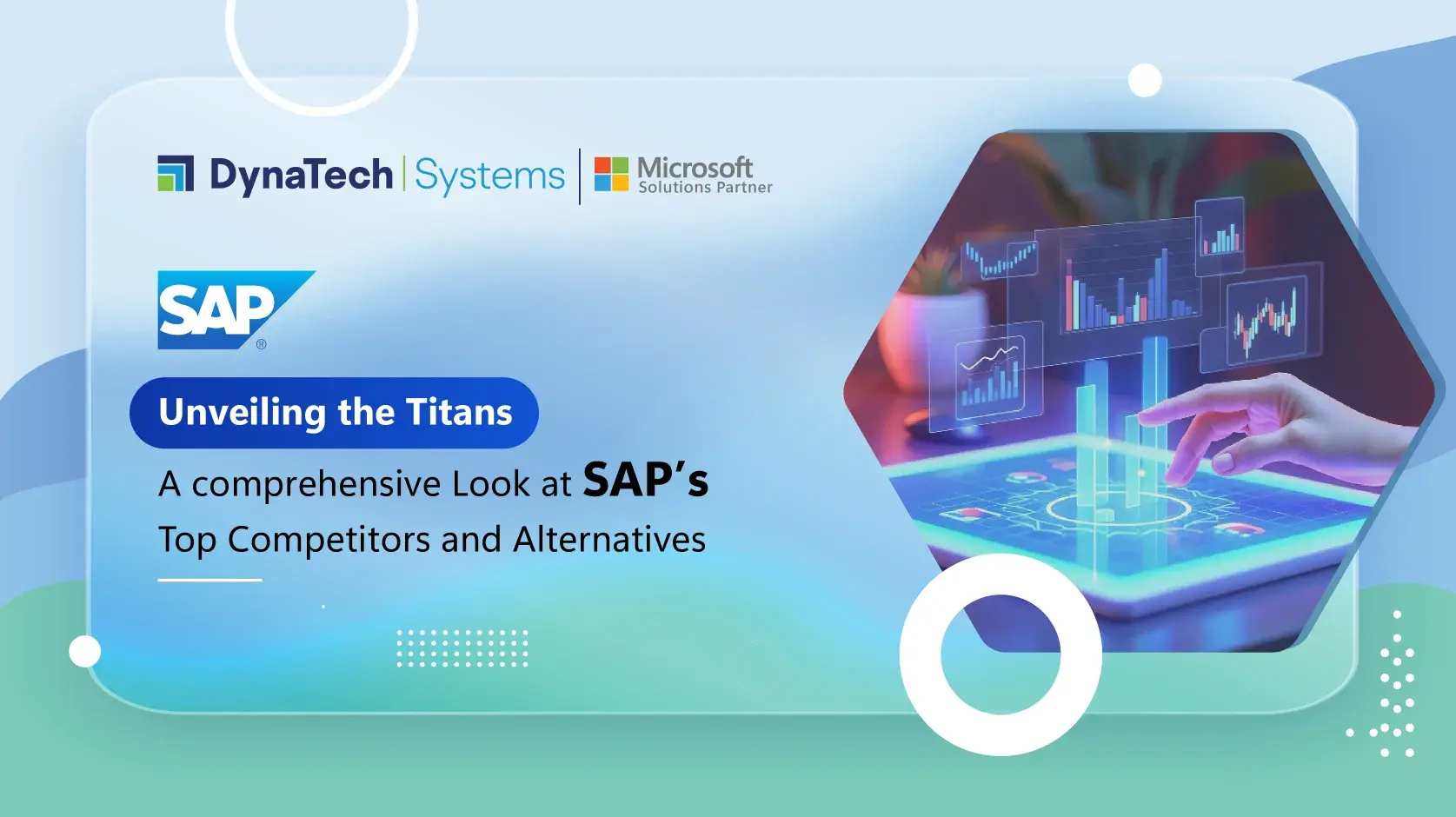Today, SAP (Systems, Applications, and Products) has long been a powerhouse, providing businesses with integrated and innovative solutions to streamline their operations. However, as the technology ecosystem continues to transform, numerous contenders have emerged, vying for a piece of the market share. In this comprehensive exploration, we'll delve into the world of SAP competitors, categorizing them on the basis of Small and Medium-sized Enterprises (SMEs) or Large-Scale Businesses. Additionally, we'll critically examine SAP's limitations, shedding light on aspects where it faces challenges.
SAP Limitations
Before we delve into the competitors of SAP, it's essential to acknowledge some of the limitations that SAP faces:
- Complexity and Implementation Time
SAP solutions are renowned for their robustness, but they are often criticized for their complexity. Implementing SAP systems can be a time-consuming process, especially for smaller businesses with limited resources. The extensive customization options can lead to longer deployment times, impacting the overall efficiency of the implementation. - Cost of Ownership
SAP solutions come with a significant upfront investment, making them less accessible for smaller businesses with budget constraints. The Total Cost of Ownership (TCO), including licensing, implementation, and maintenance costs, can be substantial, leading some organizations to seek more cost-effective alternatives. - User Interface and Experience
The user interface of SAP applications has historically been considered less intuitive compared to some of its competitors. The complexity of the software can result in a steeper learning curve for users, potentially affecting productivity and user satisfaction. - Cloud Transition Challenges
While SAP has made strides in transitioning to the cloud with offerings like SAP S/4HANA Cloud, some users face challenges migrating from on-premises solutions. This transition process can be intricate, requiring careful planning and execution, which may deter businesses seeking a more seamless cloud experience. - Industry-Specific Customization
SAP's industry-specific solutions are robust, but the level of customization required for certain niche industries can be a drawback. Competitors like Infor and Epicor, with a more specialized focus, may offer tailored solutions that better suit specific industry needs.
SAP Competitors for SMEs
- Microsoft Dynamics 365 Business Central
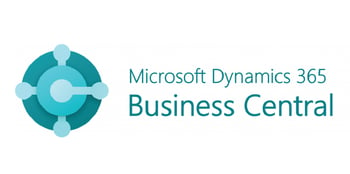
In this list of SAP competitors, Microsoft Dynamics 365 Business Central stands out as a strong competitor for SMEs. It renders a user-friendly interface and a range of integrated applications for finance, sales, and customer service. The scalability and flexibility of Dynamics 365 make it an attractive option for growing businesses.
Dynamics 365 Business Central provides a seamless experience for small and medium-sized enterprises, combining ERP and CRM functionalities. The platform's integration with other Microsoft products, such as Office 365, enhances collaboration and productivity. - Sage Intacct
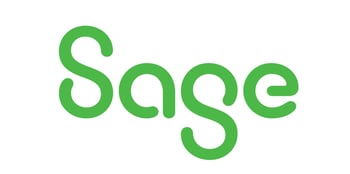
Sage Intacct specializes in cloud-based financial management solutions, making it an ideal choice for SMEs looking for scalable and agile software. With a focus on automating financial processes, Sage Intacct competes directly with SAP Business One in the SME market.
Sage Intacct's strength lies in its ability to streamline accounting processes, offering real-time insights into financial performance. The platform's cloud-native architecture allows for easy customization and integration, catering to the specific needs of SMEs. - QuickBooks Enterprise
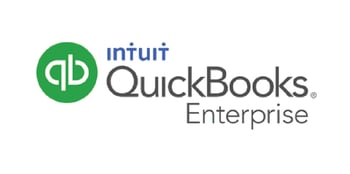
QuickBooks Enterprise, developed by Intuit, is a popular choice for SMEs seeking a cost-effective yet powerful accounting and business management solution. While not as extensive as SAP's offerings, QuickBooks Enterprise is user-friendly and allows businesses to scale as they grow.
QuickBooks Enterprise simplifies financial management for SMEs, offering features like advanced inventory tracking, customizable reporting, and industry-specific solutions. Its affordability and ease of use make it a preferred choice for smaller businesses with straightforward operational needs. - EPROMIS
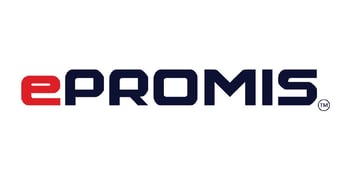
ePROMIS, a global ERP provider, competes directly with SAP Business One by offering SMEs comprehensive solutions for finance, inventory, and project management. Known for its industry-specific expertise, ePROMIS provides tailored solutions for sectors such as construction, manufacturing, and distribution.
ePROMIS distinguishes itself by focusing on innovation and customer satisfaction, ensuring that SMEs have access to cutting-edge features and ongoing support. Its commitment to providing scalable solutions tailored to specific industries positions it as a significant player in the SME segment, challenging SAP's dominance in this space - ERPNext
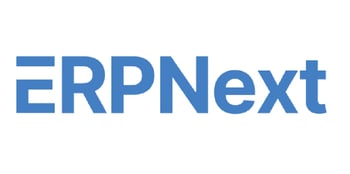
ERPNext enters the SME arena as an open-source ERP solution, gaining traction among businesses looking for cost-effective alternatives. ERPNext covers modules including accounting, inventory, and project management, providing SMEs with a customizable and affordable solution.
The community-driven development of ERPNext fosters a collaborative environment, ensuring ongoing updates and improvements. SMEs appreciate the platform's accessibility and straightforward implementation, rendering a viable alternative to more complex and expensive solutions like SAP Business One. - ERPAG
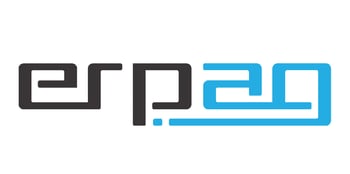
ERPAG, initially targeting SMEs, also caters to the needs of larger enterprises with its cloud-based ERP solution. Its scalability and comprehensive modules make it suitable for handling the complexities of larger organizations. For SMEs, ERPAG offers a user-friendly interface and focuses on simplifying complex business processes.
The platform's cloud-based architecture allows for accessibility and flexibility, ensuring that SMEs can efficiently manage their operations without the need for extensive IT infrastructure. ERPAG's emphasis on inventory management and order processing aligns with the needs of SMEs in competitive markets, making it a viable contender against solutions like SAP Business One.
SAP Biggest Competitors for Large Scale Businesses
- Oracle Corporation
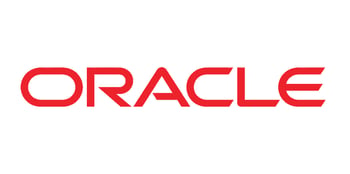
Oracle, with its robust suite of ERP solutions, competes directly with SAP in the large-scale business segment. The scalability of Oracle ERP Cloud and its integration capabilities make it perfect and one of the most preferred choices for enterprises with complex and extensive operational requirements.
Oracle ERP Cloud caters to large enterprises with a comprehensive suite of applications covering finance, procurement, project management, and more. The platform's advanced analytics and automation capabilities contribute to improved efficiency and decision-making for large-scale businesses. - IBM
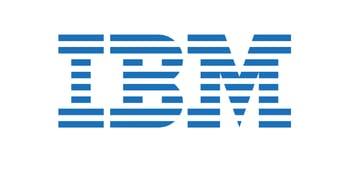
IBM, with its focus on artificial intelligence and business process management, competes with SAP in serving the needs of large-scale enterprises. The acquisition of Red Hat has bolstered IBM's cloud capabilities, intensifying the competition in the cloud infrastructure space.
IBM's enterprise solutions, including IBM Sterling Supply Chain and IBM Maximo Asset Management, target large businesses with intricate operational needs. The integration of AI and analytics enhances the capabilities of IBM's offerings, providing valuable insights for strategic decision-making. - Salesforce
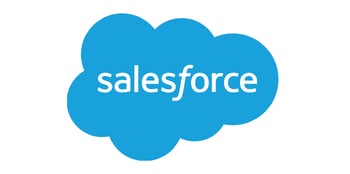
Salesforce, originally a CRM powerhouse, has expanded its reach into enterprise solutions, challenging SAP in various domains. With Salesforce's emphasis on cloud-based platforms, it competes with SAP in providing scalable solutions for large-scale businesses.
Salesforce's ecosystem includes solutions like Salesforce Sales Cloud, Service Cloud, and Marketing Cloud, offering a comprehensive suite for enterprises looking to manage customer relationships and operational processes on a unified platform. The platform's flexibility and adaptability cater to the evolving needs of large enterprises.
- Infor
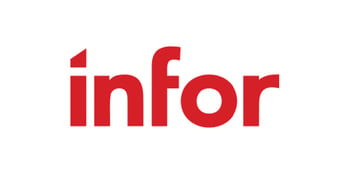
Infor, with its industry-specific ERP solutions, competes with SAP in serving the needs of large enterprises. Infor CloudSuite, tailored for specific industries, attracts businesses looking for specialized solutions that align closely with their operational requirements.
Infor's industry-specific focus sets it apart, offering solutions like Infor CloudSuite Automotive and Infor CloudSuite Healthcare. Large enterprises benefit from Infor's deep understanding of industry nuances, providing tailored solutions that enhance efficiency and compliance. - Workday
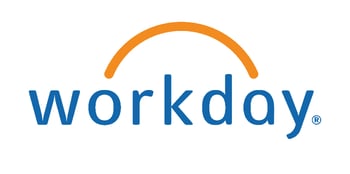
Workday's focus on human capital management and financial solutions positions it as a competitor for SAP in large-scale enterprises. Its cloud-based approach and agility resonate well with businesses seeking modern and scalable ERP solutions.
Workday's solutions, such as Workday HCM and Workday Financial Management, offer seamless integration and automation for large enterprises managing complex HR and financial processes. The platform's user-friendly interface and continuous innovation make it a compelling choice for organizations with diverse operational needs. - Priority Software

Priority Software, a comprehensive ERP solution, caters to SMEs seeking integrated business management. Offering modules for finance, manufacturing, and supply chain, Priority Software provides a robust alternative for SMEs looking to streamline operations.
Its flexibility and scalability make it adaptable to the evolving needs of growing businesses. The platform's emphasis on user-friendly interfaces and cost-effectiveness positions it as a viable competitor for SAP in the SME segment. - Ramco ERP
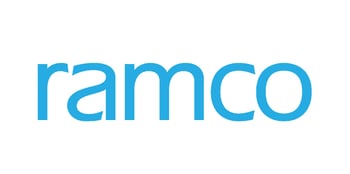
Ramco ERP targets SMEs with a cloud-based, integrated solution covering finance, HR, and supply chain management. Known for its mobility features and advanced analytics, Ramco ERP provides SMEs with the tools needed for agile decision-making.
The platform's focus on industry-specific solutions, such as Ramco Aviation, enhances its appeal for SMEs with niche requirements. Ramco ERP competes with SAP by offering a comprehensive and flexible solution tailored for smaller enterprises.
SAP or Microsoft Dynamics – Which is Better?
In the perennial debate of SAP versus Microsoft Dynamics, the scales tip decisively towards the latter. Microsoft Dynamics stands out as a superior choice for businesses seeking a modern, user-friendly, and seamlessly integrated enterprise solution. Dynamics offers a more agile and cost-effective platform, contrasting with the complexities and higher costs associated with SAP implementations. With its intuitive interface, cloud-based flexibility, and comprehensive suite of applications, Microsoft Dynamics takes the lead in providing organizations with a dynamic and scalable solution that adapts effortlessly to the evolving needs of the digital age.
DynaTech – Your Premium SAP Alternative Partner
In the realm of enterprise solutions, DynaTech stands as the premier alternative partner, specializing in Dynamics 365 services for businesses seeking a departure from traditional SAP implementations. With a focus on user-friendly interfaces, swift implementations, and scalability, our tailored solutions offer a seamless transition to a dynamic and agile platform.
Addressing the limitations of SAP, we prioritize efficiency, lower costs, and streamlined implementations, positioning ourselves as the ideal partner for organizations ready to embrace a modern and flexible enterprise solution. Choosing us as your Dynamics 365 partner signifies a strategic move towards a future-proofed and user-centric approach to enterprise management, empowering your organization to thrive in the digital era. Connect with our experts today!



























